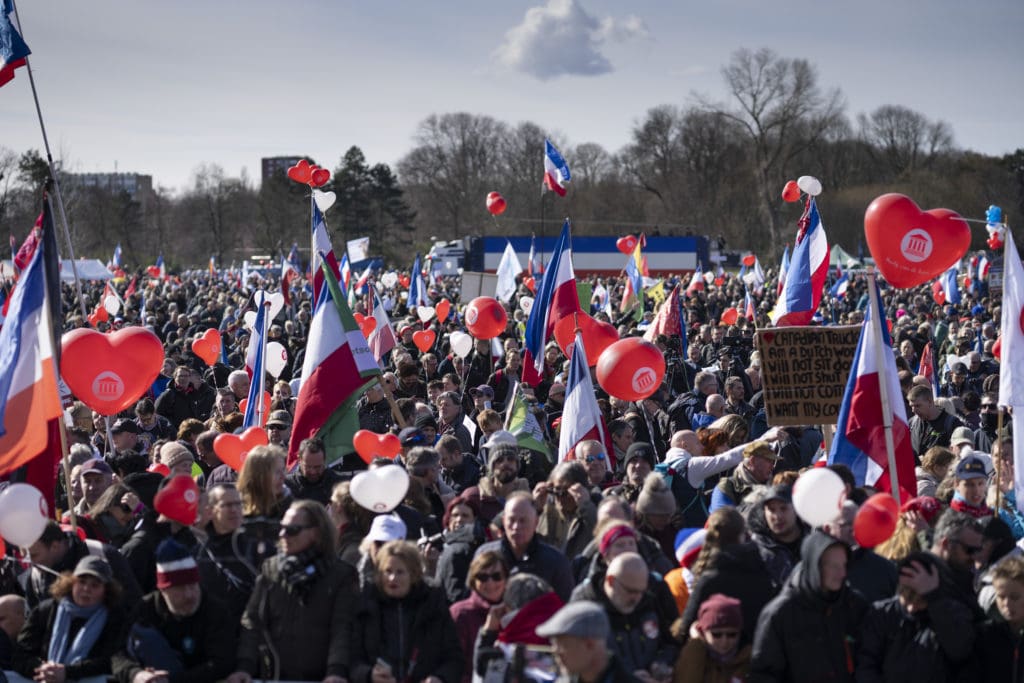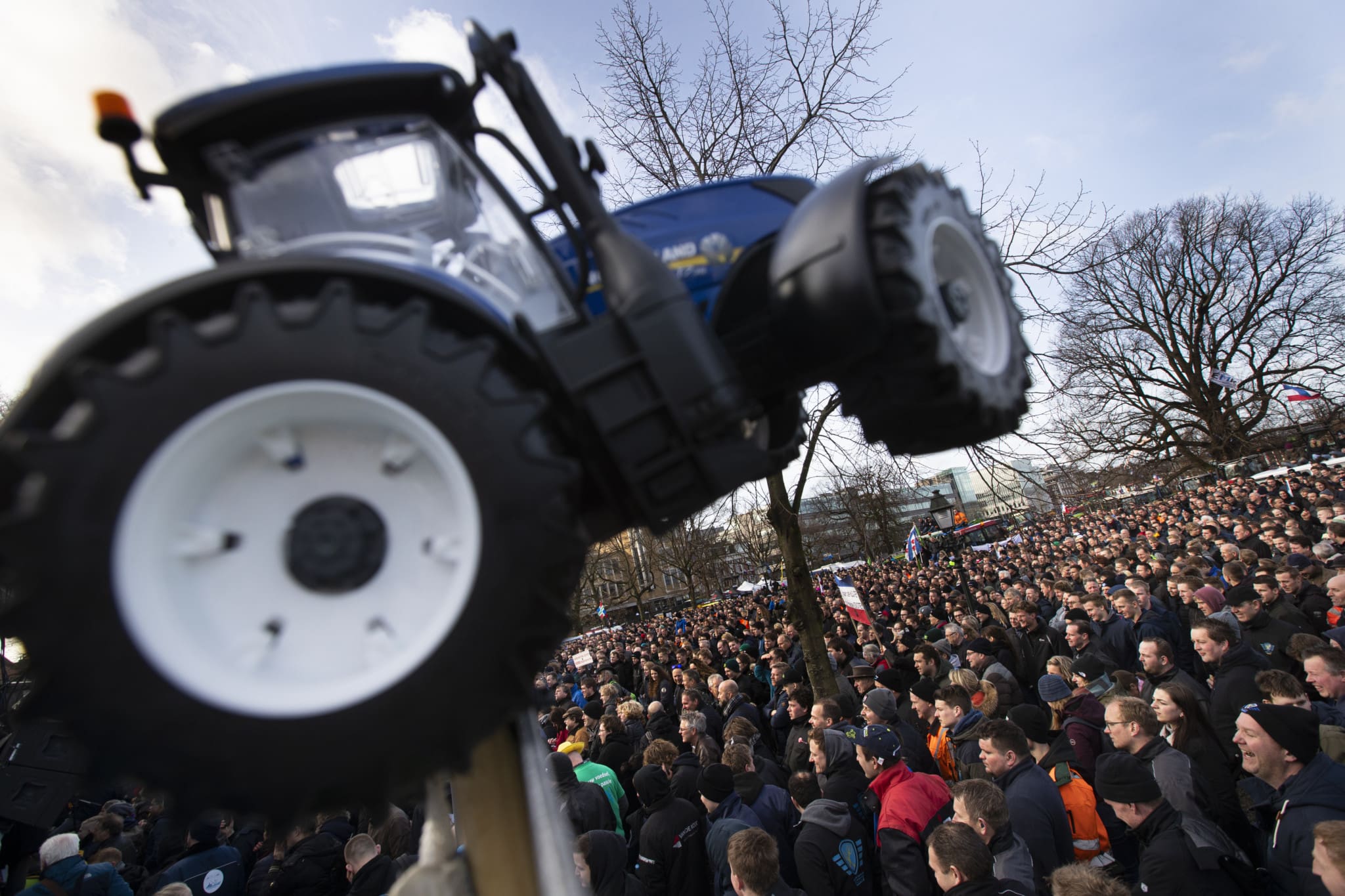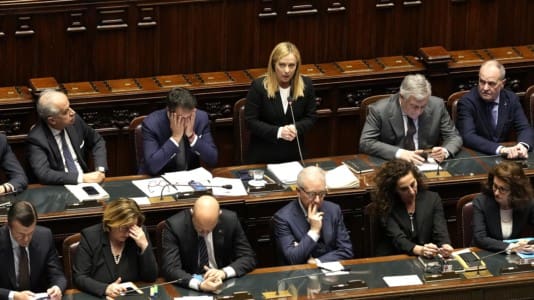As the Dutch head to the polls today for midterm provincial elections, the populist farmer protests that have shaken the country over the last year could not only be the undoing of Prime Minister Mark Rutte, but also mark a major turning point against the Green Revolution in the EU.
Just this week, an estimated 10,000 farmers and anti-establishment demonstrators gathered in The Hague against Dutch government plans to enforce strict environmental standards on farmers, a move that many say will not only bankrupt them but also lead to a dramatic increase in food prices.
The protest was, of course, tied to provincial elections set to take place today, and politicians opposed to the government’s plan were in attendance. Not only are farmers turning to populist parties such as the Party for Freedom and the Farmer-Citizen Movement (BBB), there is also a growing number of Dutch citizens taking an anti-establishment view on migration, green energy policy, and agriculture — just to name a few key issues.

“The issue of the elections is that this government should step down. They are killing our farmers. They are killing off fishermen, companies that have been active for generations. And in the end, nothing is left because of the so-called nitrogen problem in the Netherlands,” said Geert Wilders, the leader of the Party for Freedom.
“People are fed up with it. You will see tens of thousands of people negatively impacted by the policies of the government. We want our country back. We want the Netherlands to be put first again,” he added.
Wilders has reason for optimism. Although Rutte’s party leads in the polls, its support has been substantially diminished in the fractured Dutch political landscape. One of the key factors at play is the BBB party, which was formed in 2019 and has only one MP, but polling suggests it will dramatically transform the Dutch political landscape. The party is set to be the second-largest or even the largest party in Wednesday’s vote and appears to be a lock to be the largest party in five rural provinces.
[pp id=69143]
The regional elections have an outsized effect on Dutch politics because provincial governments determine who sits in the Dutch senate, and without their backing, bills cannot become law. That means national laws in the Netherlands are tied to the provincial governments.
Today’s election will bring provincial councils into power, and in late May, these same councils will elect the 75 members of the upper house. Polling shows that Rutte’s government coalition is likely to fall short of a majority, meaning he will need votes from the right or the left to pass laws and run the government. Analysts predict this may be impossible due to growing polarization in the Dutch political scene.
The BBB is not the only party growing in popularity, with Wilders’ party also rising in the polls along with other conservative parties, such as the new JA21.
[pp id=42215]
Protesters remain opposed to the government’s plans to buy out farmers and reduce livestock numbers to cut emissions in half by 2030. The government argues that it must enact the plan to meet environmental requirements dictated by Brussels, while skeptics contend the farmers’ land will be bought up by real estate developers and other special interests.
Wilders, while speaking to protesters gathered in The Hague, asked attendees to channel their anger into enacting change at the ballot box.
”In the Netherlands of (Sigrid) Kaag (Dutch Finance Minister and leader of the D66 party) and (Mark) Rutte (Dutch Prime Minister and leader of the VVD party), the Dutch people are in last place. And I’m fed up with that. Are you fed up with that too? Then we will change that together next Wednesday. Then, we will return the Netherlands to the Dutch people on Wednesday,” said Wilders. “You are the engine of this beautiful country. Without farmers and without fishermen, the Netherlands is no longer the Netherlands.”
Police blocked an unknown number of tractors from arriving at the protest, citing “safety” concerns. Only two were allowed to attend, but the move reflects the powerful symbolism the tractor has come to represent for the burgeoning protest movement.
“No farmer in Holland will survive. If the corrupt politicians stay in power in Holland, it’s over. So, the (election) is important for all the farmers in the Netherlands,” said Bob De Jong, a farmer from North Brabant Province, while speaking with the Associated Press.
Another protester, 61-year-old Sylvia Smits, said, “Everything is falling apart and farmers are being bought out. They have to sell their properties. They want us (to accept) digital currency, so no cash money.
There’s a shortage of food. Many people do not have enough money to eat every day. And it’s really horrible. The Netherlands, Holland, was once a very, very rich country. But now we are falling apart.”





